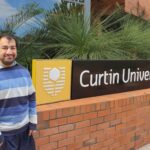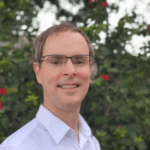Curtin’s new sustainable development initiative (SDI) is well-placed to have a real impact on the future of Western Australia and the nation according to its Director Satis Arnold.
The SDI is the face of Curtin’s new key area of sustainability and draws together over 40 separate centres working across all faculties, which have relevance to sustainability.
Mr Arnold said rapid growth of WA, resulting from the resources boom, is making sustainability a crucial issue for the State.
‘The current population of Perth is about 1.5 million and the Australian Bureau of Statistics and urban planners are projecting that to grow to three million by 2050,’ he said.
‘If business continues as usual, that means doubling all of the services and support infrastructure we need to operate the city and supporting massive resource industry growth in the State; that’s a lot of additional stress on the environment,’ he said.
‘We need to do both climate change adaptation, which is to anticipate future climate change impacts and prepare for them, and mitigation, which has to be globally harmonised to be effective.
‘Firstly we need to cooperate with the other parts of Australia and participate in a national strategy and secondly, Australia needs to cooperate with the rest of the world because if you emit greenhouse gases in any part of the world it’s going to affect all of us.’
Mr Arnold’s extensive experience in policy development will assist the SDI in partnering with State and Federal Governments and companies, and collaborating with other research institutions to ensure change.
‘Western Australia needs a lot of science, research and policy advice to assist the government, companies and the various community groups,’ he said. ‘The future is very bright and promising for the role the SDI will play in our community.’
The Curtin University Sustainability Policy (CUSP) centre, headed by high profile sustainable cities and transport expert Professor Peter Newman, will work with the SDI and will be significant in sustainability teaching and research.
Mr Arnold said the University is working towards reducing its carbon footprint and becoming an increasingly sustainable community. ‘I think with the institute Curtin is in the right space at the right time and we are going to need to involve everybody in this exciting venture.’


